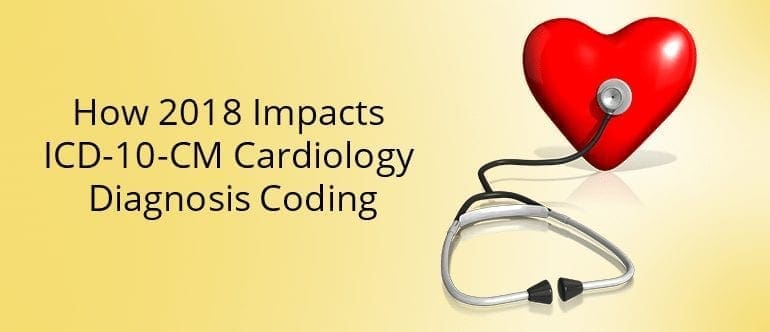Call us toll-free: 800-878-7828 — Monday - Friday — 8AM - 5PM EST

By Terry Fletcher BS, CPC, CCC, CEMC, CCS, CCS-P, CMC, CMCSC, CMCS, ACS-CA, SCP-CA for ICD10 Monitor
For cardiology, the focus of ICD-10 is generally on increased specificity and documenting the downstream effects of the patient’s condition. Acute myocardial infarction, or what is more commonly known as AMI, had a definition change when the nation’s healthcare system switched from ICD-9-CM to ICD-10-CM in 2015. So when documenting AMI in ICD-10-CM, here’s a reminder to keep the following in mind before we look at 2018 changes:
- Time frame: AMI will now be considered “acute” for four weeks from the time of the incident (remember that this is a revised time frame from ICD-9, which was a period of eight weeks).
- Episode of care: ICD-10 does not capture episode of care (e.g. initial, subsequent, sequelae).
- Subsequent AMI: ICD-10 allows coding of a new MI that occurs during the four-week “acute period” of the original AMI.
Article originally published on February 13, 2018 by ICD10 Monitor.
